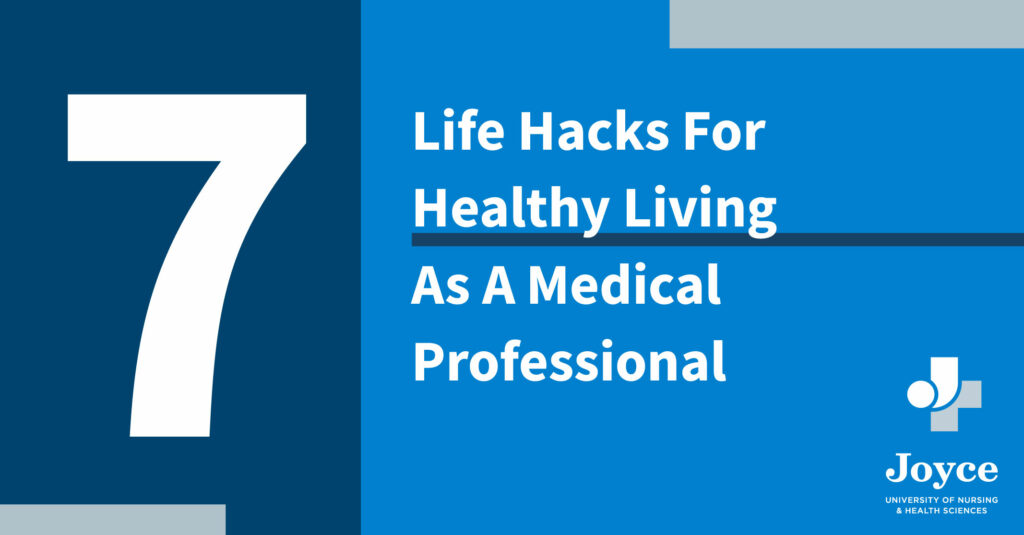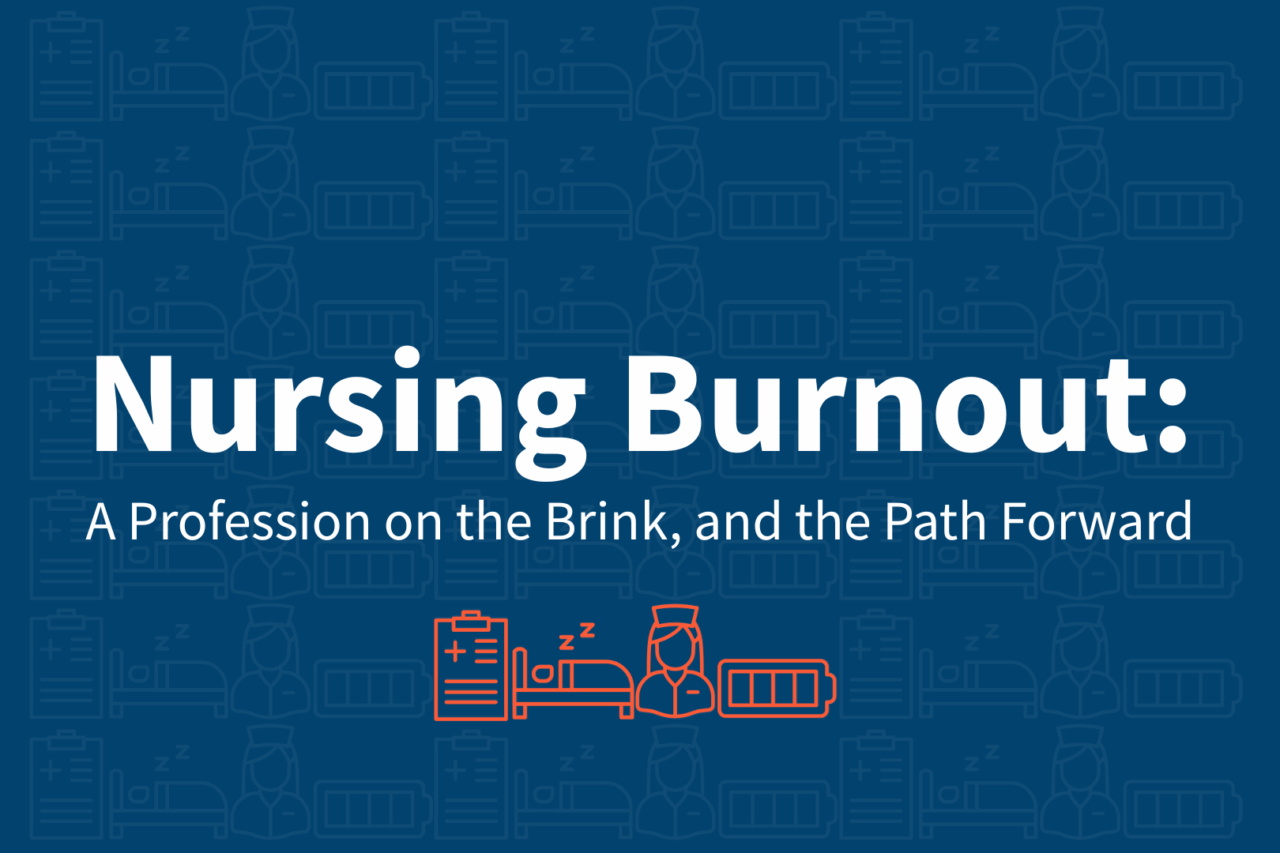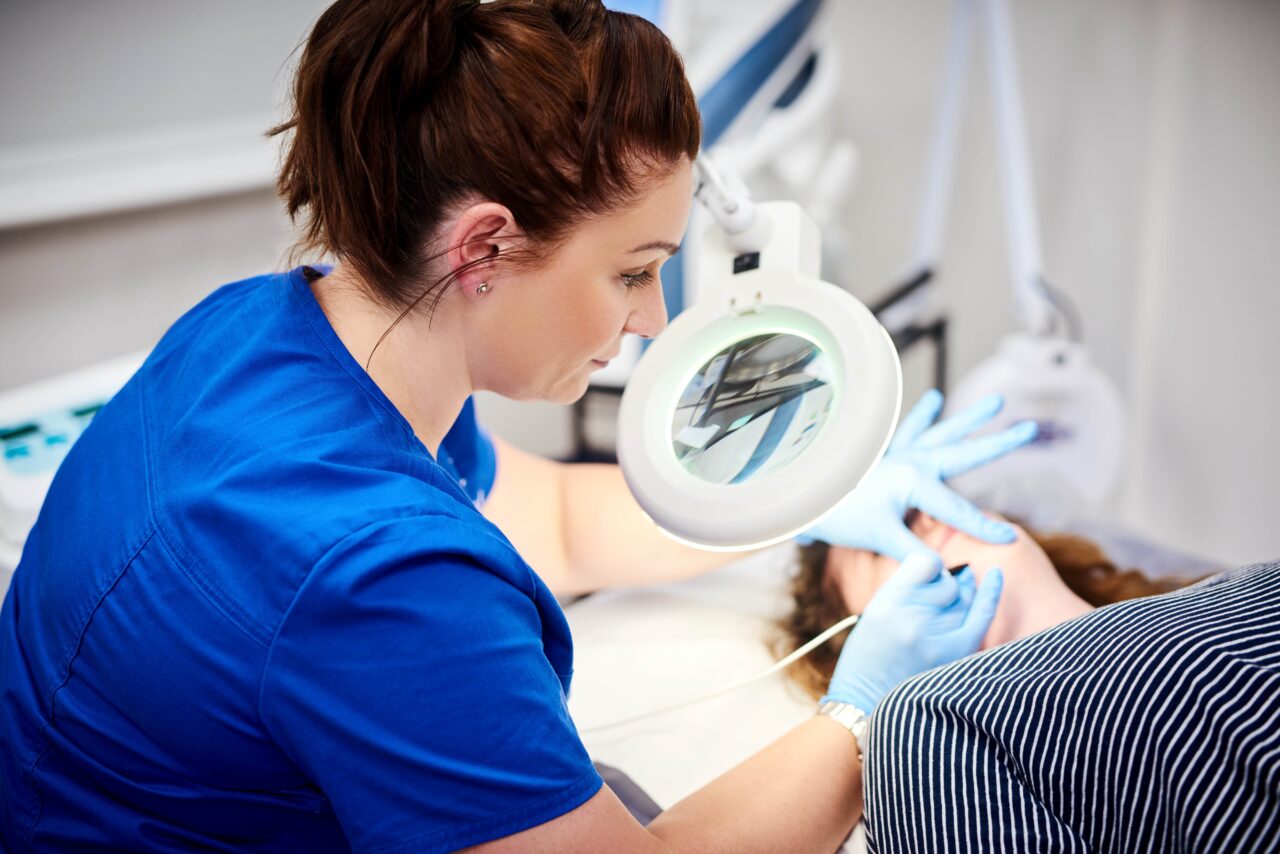7 Life Hacks for Healthy Living as a Medical Professional
Staff WriterApr 25, 2022
It’s unfortunate that a profession in which people study human health often has such a high personal cost for healthcare professionals themselves. The high stakes, long hours, and stress of some healthcare jobs take a toll on many people’s quality of life.
To help you prioritize healthy living, we’ve put together seven easy lifestyle hacks you can work into your own daily routine to keep thriving!
1. Get everything ready the night before
How many times have you pulled out of the driveway and realized you forgot your phone charger, or your lunch, or your work shoes? Worse, how many times have you gotten all the way to your workplace and realized you forgot something crucial? Avoid these late-making habits by getting everything ready the night before and place your things beside the door. If you need to keep something in the refrigerator until the last minute, leave yourself a note or place something colorful or unusual by the door to jog your memory.
2. Lunch smarter, not harder
Bringing a lunch to work is a great way to save money and time. Shop for and pack all the healthy things you want your future self to eat, especially high energy foods like fruits, nuts, beans, and whole grains.
One great way to prepare in advance for lunchtime is to double the recipe of every meal you make at home. Make small portions and freeze them in lunch-ready containers. So when it’s late or you’re tired and you still need to get ready for the next day (see step 1), you’ll have a lunch portion ready and have one less thing to worry about.
Related resource: How to Create a Healthy Work Environment in Nursing
3. Bike to work
Yes, it takes a little more preparation, but biking to work might become one of the best parts of your day. In addition to being a great, low-impact form of regular exercise, riding your bike gets you out of traffic and makes your daily routine more interesting … all great stress relievers. You’ll also get to meet different people and see different parts of the city. Bonus: You’ll save so much money on gas!
4. Politely remove yourself
We’ve all been there: on the receiving end of a long conversation that we don’t have time for but just can’t seem to pull ourselves away. If you work in healthcare, this uncomfortable interaction can take up significant time that you need for your work. It can be very liberating to cultivate a method of politely removing yourself from the chatter. A good place to start: “I enjoyed our conversation, but I have to go and take care of another patient. I’m not far if you need me.”
5. Watch and workout as you watch TV
Any sane medical professional knows that to have a life while raising a family or going to school, you have to multitask. So make a rule for yourself: If the TV is on and you’re watching it, you’re also doing something productive. This may be yoga stretches, folding laundry, or fixing that shirt that’s been missing a button for months. It won’t take long to make this habit stick. You’ll be amazed at the amount of laundry that can get sorted during a single episode of “Game of Thrones.”
Related resource: How to Balance Nursing School With Work and Family Life
6. Healthy feet, healthy head
Nurses, medical assistants, and other healthcare workers, you must take care of your feet! You’re on them all day, and you only have two. In fact, 2 million sick days are spent each year on this debilitating situation. A few basics to keep in rotation:
- Wear good shoes. Yes, they’re expensive, but so is a hip replacement.
- Stretch. All. The. Time. Here are 4 stretches you can do while working.
- Elevate, massage, and use cold packs when you’re at home.
- Soak your feet. Epsom salts work wonders; salt absorbs water and reduces swelling.
- Use orthotics; they are your friends.
- Take NSAIDs to prevent short-term swelling.
Related Resource: Foot Care for Nurses
7. Power down at night
There are many reasons to turn off your phone two hours before bedtime. Whether you’re checking the status of a patient or cramming for a test the following day, it can be hard to appreciate the quiet stillness that precedes sleep. But the light of a phone screen delays your body’s release of sleep-inducing melatonin, and electronic communication also stimulates cognitive brain waves that prevent sleep. So turn that screen off, and pick up a book if you’re still not quite ready to catch some zzz’s.
Related resource: 10 Tips for Better Sleep During Nursing School
Despite the stress that many vigilant medical professionals experience during the regular course of their jobs, it’s important to take a few steps to achieve a healthy balance in a demanding field.
At Joyce University, we take a holistic approach to healthcare education, so making sure our students stay healthy is a priority for us. Whether you’re beginning your healthcare journey with our ASN program, pursuing a 3 year BSN degree or accelerated BSN program, advancing through our RN to BSN program, or reaching higher with an MSN degree, we’ll help you develop healthy habits that last throughout your career. Discover which nursing program aligns with your wellness goals by exploring our nursing school.
Nursing
Learn MoreHealth Sciences
Learn MoreApply Now
Request Info





